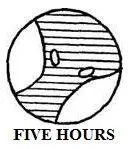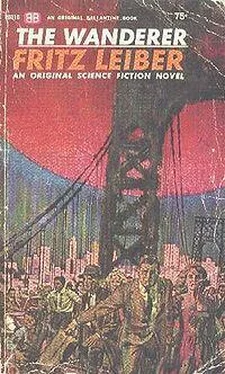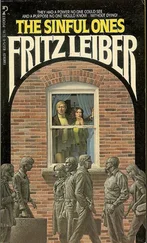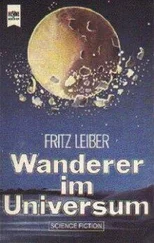“My Christ, what was that?” the General yelled in the dark.
“You saw it, too?” Colonel Mabel Wallingford demanded. A laugh, half hysterical, half exultant, rimmed her question.
“Shut up, you stupid bitch!” the General shrilled. “Jimmy?”
“It was a chance distortion.” The younger man’s voice came shakily through the blackness. “Inkblot effect It couldn’t have been—”
“Quiet!” Colonel Willard Griswold yelled at all three of them. “Listen!”
They all heard it: the sound of water gushing and splashing.
Aboard the “Prince Charles” they were especially conscious of the choking radioways.
Both the insurgents now controlling the luxury liner, and also the loyal crew members, using a ham sender, tried unsuccessfully to get off messages of the great coup, the one group to their revolutionary leaders, the other to the British Navy. And Wolf Loner, three thousand miles north, was thinking how good it was to be without newspapers and radio — he rather wished he and his dory weren’t reaching Boston quite so soon.
The Wanderer’s magnetic field, far stronger than Earth’s, sprang out through space as swiftly as its gravitational field, almost instantly affecting instruments sensitive to it But besides this all-pervasive magnetic influence, there were stranger straight-line influences streaming down from the Wanderer and striking the side of the earth facing it. They ripped the van Allen belts and dumped a cloudburst of protons and electrons on Earth.
These powerful straight-line influences were greatly intensified when Luna went into orbit around the Wanderer and began to break up. They produced ionization and other, subtler effects, the chief perceptible result of which was swiftly to unfit Earth’s stratosphere and also her lower atmosphere for any sort of electromagnetic communications.
As the First Night of the Wanderer traveled west around the world, or, rather, as the world spun eastward into it, this poisoning of the radio sky spread to the whole globe, greatly contributing to the fog of catastrophe that was cutting off country from country, city from city, and, ultimately, mind from mind.
While the oddly-assorted medical team of Doc, Rama Joan, and the Ramrod prepared to set Ray Hanks’ broken leg, Clarence Dodd led the rest of the men in an expedition back to the buried cars. With three or four of them to give the truck a running push, it got underway easily enough in the sand, but tended to stall when they all tried to pile in, so Hixon, the Little Man, and young Hairy McHeath rode, while Paul, Hunter, and Wojtowicz trudged.
Halfway there, McHeath came loping back past them with splints and tape from Doddsy’s first-aid stores.
“Don’t strain yourself, kid,” Wojtowicz yelled after him. “Run it like the two-mile, not the four-forty!
“The kid overdoes,” he told Paul. “I’m responsible for him to his aunts, though they are a pair of snooty old dames.”
After the little trek, they helped Doddsy and Bill Hixon unload from the unburied back of his station wagon and onto the truck a formidable assortment of practical equipment, including tins of food and near-beer, blankets, two leather jackets, a small tent, charcoal briquettes and kerosene, and a primus stove — and some seven-power field glasses, which they instantly used to look at the Wanderer, but the lenses only stretched the purple and gold; however, the cracks on the surface of the mashed and ellipsoidal moon, now disappearing on its second time around, became chillingly wide.
Then from Doddsy’s car came two machetes (Paul chuckling to himself at the romanticism of it), and two army-surplus rifles with ammunition. Lastly, three five-gallon cans and a length of hose which they used to siphon gas from the tanks of the buried cars to fill the truck’s tanks and make a fifteen-gallon reserve.
Wojtowicz shouldered one of the rifles and announced: “Hey, look, I’m back in the service! Forward… march! — I got a clownish side,” he explained to Paul.
The loaded truck, though sluggish once or twice in the looser sand, did the return trip readily enough. Hixon even whirled it in for a landing as fancy as a speedboat’s with the tailgate abutting the raised platform.
Doc’s comment, when he’d surveyed the treasures, was, “Doddsy, I see everything here for emergencies but hard liquor — or soft, for that matter,” he added, shaking his head incredulously at the label on a near-beer can.
“I have an ample supply of barbiturates and Dexedrine,” the Little Man batted back at him.
“Not the same thing,” Doc mourned. “I never was partial to goofballs. Now if it were mescaline, say, or peyote, or even a few sticks of marijuana…”
Wanda glared. Harry McHeath laughed nervously, and Wojtowicz said solemnly, with a warning glance at Doc: “He’s jokin’, kid.”
Doc grinned and said to the thin woman: “Break out the last of the hot coffee, Ida. The Hixons still haven’t had any, or sandwiches either, and we can all do with a bite and a cup. Now we know Doddsy’s got jars of the powdered, there’s no need to hoard.
Besides, we’ll need the jug for water from the beach-house tank — I’ve checked it, and it’s drinkable. Some of you may think I’m nothing but a C 2H 5OH maniac, but actually I give an occasional thought to H 2O.”
Agreement on the coffee suggestion was unanimous. Everybody was tired and glad to sit or flop on the platform, up off the gritty sand. In their midst on the cot was Ray Hanks, with his leg wrapped and taped until it looked, in Wojtowicz’s words, like a section of sewer pipe. But the injured man was resting tolerably after being dosed with the rest of Doc’s whiskey — and with the Ramrod keeping a light “healing touch” on his hip.
Ida poured first for the Hixons, who were sitting side by side now, he with his arm around her. They looked at each other, then touched cups rather solemnly. It set a tone. There was something solemn about them all as they started to sip their last scant cups of brewed coffee. As Hunter had divined earlier, each in his way felt that this place was home and dreaded the moment of departure. Here on the beach there were no hills to fall, no buildings to collapse and burn, no gas pipes to crack and flare hot yellow, or wires to fall and flash blindingly. (True, there was the beach house, looking lopsided now with one wall knocked askew by the quake, but it was dark and low and boarded up, and so could be ignored.) There were no strangers monitoring their actions, no victims to enjoin their aid. Static choked what messages of catastrophe, what do’s and don’t’s, what police and Red Cross and Civilian Defense directives must be crowding the airwaves. It was good to dream of just staying here, a compatible little beach colony — just staying here and watching the Wanderer, which was sinking and showing toward the ocean, the moon again eclipsed behind it and the planet itself showing a face like that of a bull charging purple head on, the yellow target-center half out of sight and a larger, lower yellow round creeping into view. By chance, or conceivably by intention, two small yellow ovals made eyes. Doddsy set down his coffee cup to sketch it.

“El toro,” Margo said.
Rama Joan said: “The head of an octopus. The Cretans drew it just so on their vases.”
“But we’re going to have to get out of here — and in three or four hours,” Doc said suddenly, as if aware of the general, unstated dream of staying forever on the beach. “The tide.”
Читать дальше











